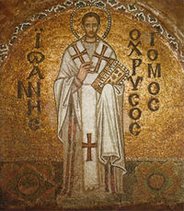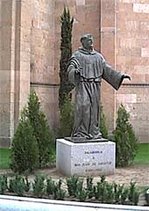Cultural Catholicism- Dead or Alive?
Ireland has suffered a cultural process that has deep analogies with the situation in Spain. A Catholic tradition profoundly rooted in history has suffered a horrible reverse in a short period of time and therapies of moralism as well as the mere defense of the patrimony of Christian Values have shown themselves to be absolutely insufficient in responding to this radical change. On the other hand, la dissolution of a shared moral fiber along with strong economic progress have opened up a space of profound dissatisfaction. There are many who have backed off from the false promises of 1968 but are still incapable of taking up Catholic Tradition once again because they don’t recognize it as an answer to their frustrated hopes. In this sense, Waters (an Irish reporter and recent revert to the Church) warned about the risk of reducing the Catholic Answer to an agenda of causes perfectly predicted and classified already by progressives like the defense of the family and the fight against abortion. With a simile about the layout of a newspaper Walters implied that Catholics would thus be found only in a certain section- Religion say-, cutting them off from deeper problems.
Of course, these and other issues form part of the Church’s Mission but even defending values such as the family and the life of the unborn it’s necessary that we recuperate a Freedom and Reason that have both been profoundly damaged. Returning home to the Church was only possible for Waters because he found an experience of faith that embraced his whole life drama that took seriously his human questions and didn’t get stuck repeating a wrote speech and set of values.
In the end, Christianity is (and Benedict XVI has repeated this until he was hoarse) God's Big yes to man, to his reason, capacity to love, and desire for happiness and unity. Only a of Faith that responds to a broken, frustrated but still seeking humanity can find an echo in those have made the journey Waters and his companions have. (That is the generation of ’68 in Europe.)
Irlanda ha sufrido un proceso cultural que tiene profundas analogías con el caso español. Una tradición católica profundamente arraigada en la historia, ha sufrido un desgaste terrible en poco tiempo, y las terapias del moralismo y de la mera defensa del patrimonio de los valores cristianos han mostrado su insuficiencia absoluta para responder a una auténtica mutación. Por otra parte, la disolución del tejido moral compartido, unida al fortísimo progreso económico, han abierto un espacio de profunda insatisfacción. Son muchos los que están de vuelta de las falsas promesas del 68, pero son incapaces de retomar el hilo de la tradición católica, porque no la reconocen como una respuesta a sus esperanzas frustradas. En este sentido, Waters advirtió del riesgo de reducir la propuesta católica a una agenda de temas perfectamente previstos y ya clasificados por la mentalidad progresista, tales como la defensa de la familia y la lucha contra el aborto. Con el símil de la estructura de un periódico, Waters decía que de esa manera los católicos son ubicados en una determinada página, privándoles de toda incidencia sobre el problema de fondo.
Por supuesto, esos y otros asuntos formarán parte siempre de la misión de la Iglesia, pero incluso para defender eficazmente valores como el matrimonio o la vida del no nacido, es preciso recuperar una razón y una libertad que están profundamente dañadas. La vuelta al hogar de la Iglesia sólo fue posible para John Waters porque encontró una experiencia de fe que abrazaba todo su drama, que tomaba en serio sus preguntas humanas y no se quedaba atascada en la mera enunciación de un discurso y de unos valores. En el Encuentromadrid, este periodista, que sigue siendo uno de los más apreciados del panorama irlandés, manifestó que si sus compatriotas redescubriesen el cristianismo de este modo se produciría una verdadera revolución cultural.
A fin de cuentas, el cristianismo (y lo repite hasta quedarse ronco Benedicto XVI) es el gran sí de Dios al hombre: a su razón, a su capacidad de amar, a su deseo de felicidad y de unidad. Sólo una propuesta de la fe que responda al drama de una humanidad rota y frustrada, pero todavía deseosa, puede encontrar eco en quienes han hecho la travesía de John Waters y sus compañeros.
(EL CRISTIANISMO Y LA CRISIS DE LOS SESENTA
Retorno a casa
Por José Luis Restán)




























